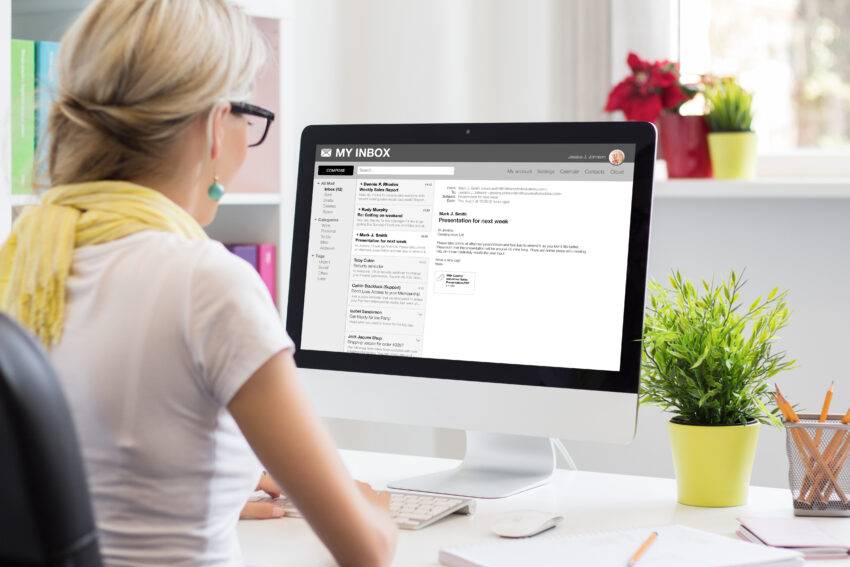New Research has found that a lot of workers struggle to switch off from work when on holiday, with nearly two-thirds thinking or worrying about work at some point while on annual leave.
With the Christmas holidays creeping up, many workers are looking forward to the holiday season to switch off.
“Lots of people have an ‘always on’ culture, with emails and work messages now at our fingertips through our phones and laptops,” says Ian Nicholas, Global Managing Director at Reed, who commissioned the research. This is backed up by the research, which revealed that nearly half of workers check their emails while they are away or just before their return.
“Remote working has transformed the way a large number of the UK workforce plan and enjoy their time off. It’s becoming more and more difficult for people to truly switch off. A big part of the problem, if people see it as one, is the boundaries that workers set with employers and colleagues – especially when it comes to signing off for a few weeks,” adds Ian.
Ian explains that this can also lead to a prompt ‘restress’ when employees return to work, with the research uncovering that it only takes 11 hours for the holiday blues to kick in and stress levels to revert to normal once we’ve returned to work post annual leave.
“It’s so important for employees to be able to switch off and have a relaxing holiday season – no matter how demanding their job role may be”, continues Ian.
From the research, Reed has unveiled the five most common ‘out of office styles’ – which, depending on what our automated message says, will depend on how much of your work life will bleed into your Christmas holiday.
What’s your OOO personality?
“Our out-of-office (OOO) message sets the tone for how we wish to be contacted while away. Those who are more prone to stress are likely to check their phones and struggle to switch off, and are more likely to be vague about how they wish to be contacted during annual leave,” explains Ian.
“In other cases, those who have strong boundaries between their work and personal life, may clearly state they do not wish to be contacted and, therefore, don’t leave any further contact details or information for people to get in touch.
“There’s no right or wrong way. But if you want to switch off from work, there has to be a limit to how responsive and available you are.”
The most popular OOO personalities:
‘The Secret Stresser’ – someone who leaves their work phone behind but spends the whole holiday worrying about work.
If you’re a secret stresser, your OOO may sound similar to this: “Thanks for your email but I’m currently off for the Christmas period. I will get back to you on my return.” But what you really mean is: “Thanks for your email. I’m currently off for Christmas thinking about your email and worrying about catching up. I will get back to you on my return.”
‘The Crisis Checker’ – someone who needs the reassurance that there’s no crisis waiting for them at work to get them through the day.
If you’re a crisis checker, your OOO may read: “I’m currently off for Christmas and will get back to you as soon as I can. If it’s an emergency, please call my mobile.” But what you really mean is: “I’m currently off for Christmas and will get back to you as soon as I can. Rest assured I’m reading all of my emails each day so I can be confident there’s no crisis while I’m gone. I’ll respond if I spot that something’s gone wrong.”
‘The Clean Breaker’ – someone who can actually fully switch off when they’re on annual leave and therefore doesn’t take their work phone or laptop.
A clean breaker’s OOO will read similar to: “Thanks for your email. I am off for Christmas and will not be checking my email during this time. Please contact another member of the team or I will get back to you on my return.” And this is generally exactly what you mean.
‘The Leave-ism Lurker’ – this person lurks on their emails throughout the holiday, checking everything but not responding.
A leave-ism lurker’s OOO is likely to be similar to the secret stresser. But what you really mean is “Thanks for your email, I am currently off for Christmas but reading all of my emails as they come through each day, so I know exactly what’s going on. I’ll respond on my return.”
‘The Christmas Grinch’ – the person that struggles to switch off at all and ends up working throughout the Christmas period.
This person may not have an OOO, but if they do, it will mirror a crisis checker and list out a number and be vague on whether or not they can be contacted. Essentially, it’s ‘business as usual’.
“It’s so important to find something that helps you to relax and ‘tune out’ of work life when you’re on annual leave, whether that’s reading a book, heading on a long walk or spending quality time with your family,” continues Ian.
“To ease the stress of returning to work post-Christmas, you can also try some practical tips before you leave, such as writing a to do list to round off your work for the year and set your priorities for your first day back.
“Taking time off is not a luxury – it’s a necessity. In the holiday season, where people often spend a lot of time catching up with family and friends they haven’t connected with in a while, this is especially important.
“Workers need to allow themselves to fully switch off to reduce fatigue and risk of burnout in the long run.”
